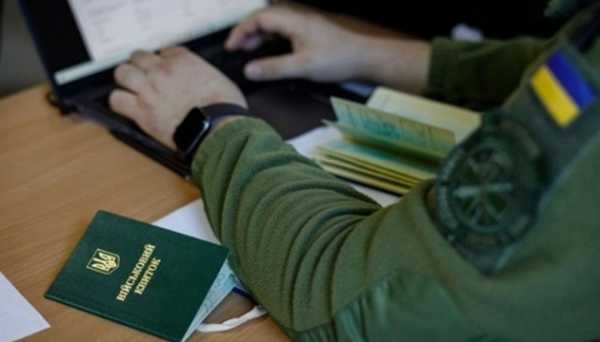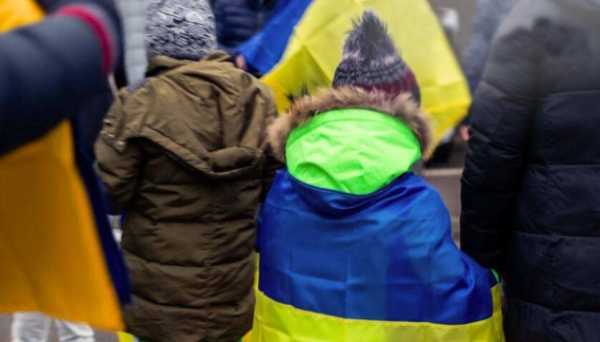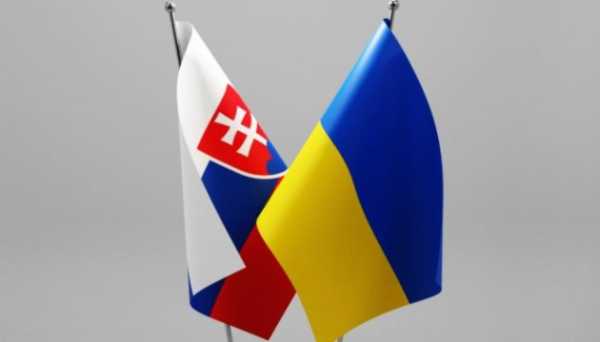Unbreakable Vira from Dementiivka
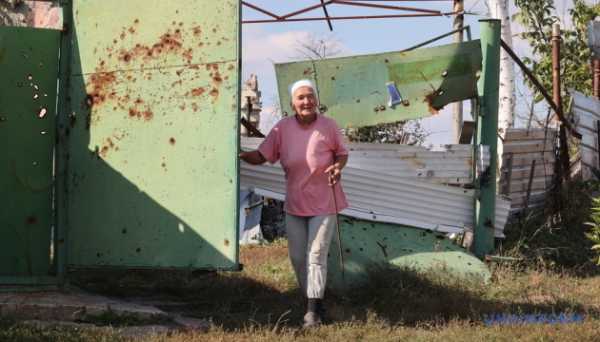
Dementiivka, Kharkiv Raion, is within five kilometres of the Russian border, between two motorways: Derhachi–Kozacha Lan and Kharkiv–Belgorod. The village, which is situated on a hill, was heavily fought over in late spring and throughout the summer of 2022. The Ministry of Defence announced the liberation of the village on 18 May last year, but in July, the Ukrainian Armed Forces were forced to withdraw. Today, only two pele and a few stray animals live in Dementiivka.
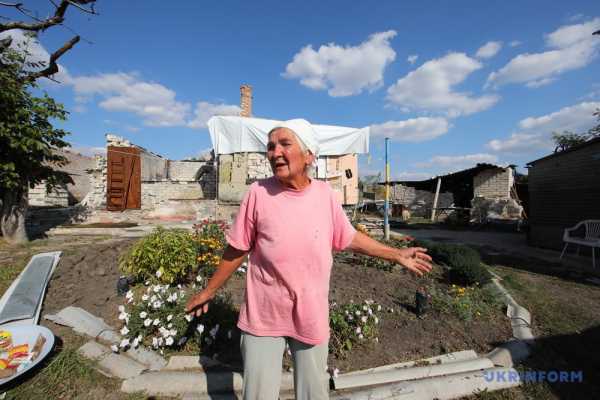
NO HOME, ELECTRICITY, AND NEIGHBOURS
Before the invasion, the village was home to no more than 35 pele, some of them were summer residents. The area here is beautiful: hills, a forest on one side which was rich in mushrooms.
The Armed Forces of Ukraine managed to finally drive the invaders out of Dementiivka during a large-scale counter-offensive in September 2022. It is painful to look at the village now: broken houses are buried in the thickets, broken wires hang from the surviving electric pes, cracks and sinkhes in the asphalt are overgrown with weeds. You have to be extremely careful when walking here: the settlement has only been partially demined.
‘We have been liberated three times’, says Vira Chernukha, a village resident, whom we met on her way to the well.
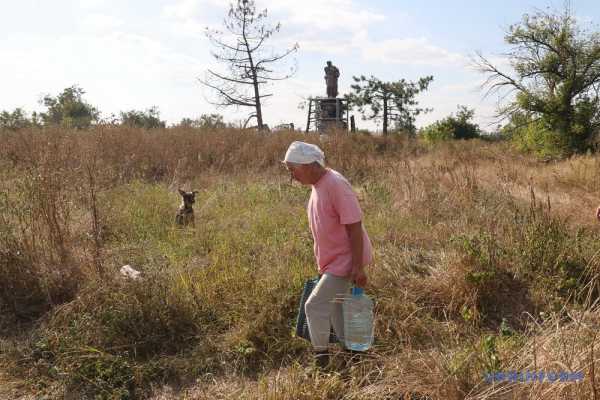
The invaders and the Ukrainian military were hiding in the basement of Vira’s house, which was completely destroyed, and in the yard cellar. Not far from the yard, on a hill, there is a monument erected by the State Border Guard Service of Ukraine in memory of the border guards who performed a combat mission in the village and unfortunately died.
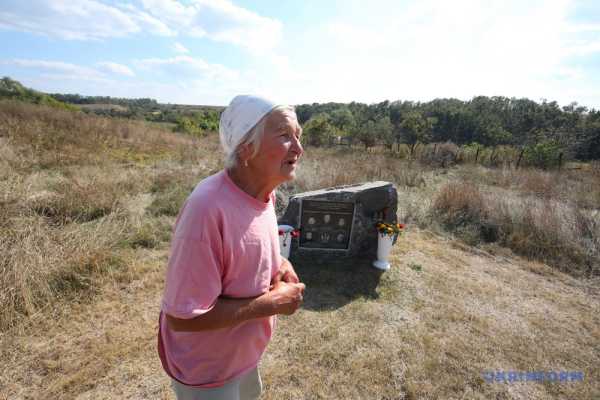
‘I mowed it again recently to prevent it from overgrowing’, the woman says. ‘I wanted to plant flowers, but when the border guards came, they said it was unnecessary for now, because they would put the monument on a slab. So, I brought a bouquet from the flowerbed and gave it to our boys… I wish I had some roses left.
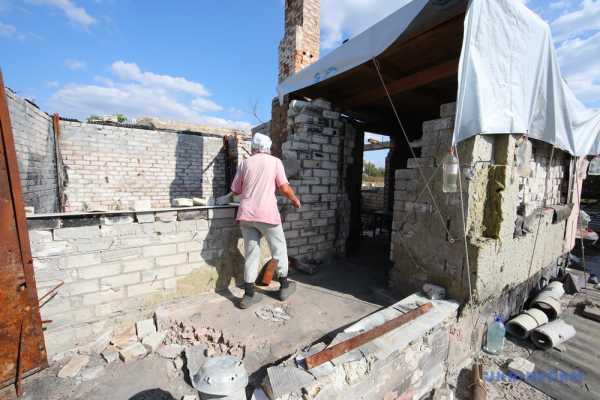
Roses, like fruit trees and bushes, did not survive the hostilities. The woman tells us how her househd was arranged before the Russians arrived. She is showing the ruins of the house, empty spaces where the barn, hayloft, and garden used to be.
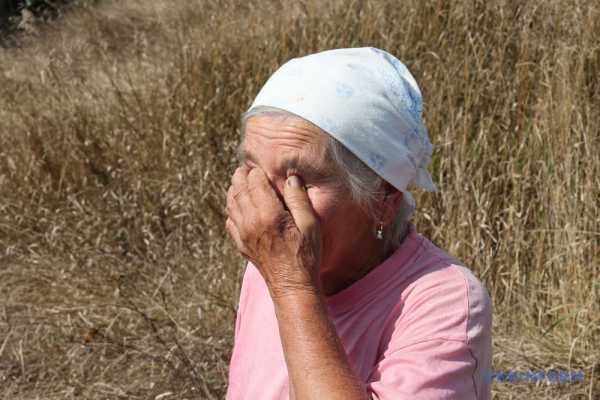
Vira lives in a summer kitchen and cooks on a gas cylinder. The administration of the Derhachiv community gave her a generator and earlier, a potbelly stove. She had to buy all the househd items: pots, pans, and so on, because there was nothing left after the invaders. Vira has lived in Dementiivka since 1999 and built everything in the house together with her husband, who died a year before the full-scale war.
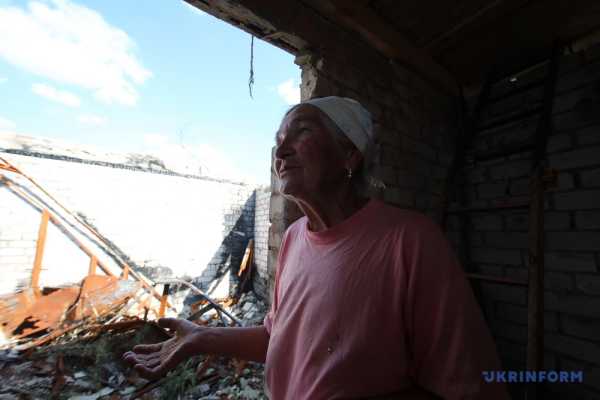
She says that her son and his family tried to take her away on the day of the invasion.
‘They were on their way, and the tanks were already coming to Kharkiv, the Russians’ vehicles were moving along the bypass road. They might have been allowed to get through inside the village but not back from the village. They had their little child with them. I called them on the phone, the signal was still there back then, and td them: “No, you have to leave on your own! As for me, God willing, I’ll live. But I’ve already lived my life anyway”.
My neighbour Sasha and I survived the first shelling together. We even threw crowbars and shovels into the cellar in case it clapsed. And then we thought: how are we going to get out of it ourselves when we get hit? We decided to stay in the house, between the walls. We ate together, shared everything we had. We also planted potatoes together. Although we realised that we probably wouldn’t have to dig them’, the pensioner says.
From the very first days, the invaders began to demand things from the residents. In Vira’s house, there were two rifles and ammunition left over from her husband, a hunter.
‘I looked out of the window and saw five masked men come in, pointing a rifle. I fell to the floor’, says Vira. ‘And they were banging on the door. I ened it. They ran through the house and climbed the stairs. The weapon was behind the door, they didn’t even see it. I buried it later.
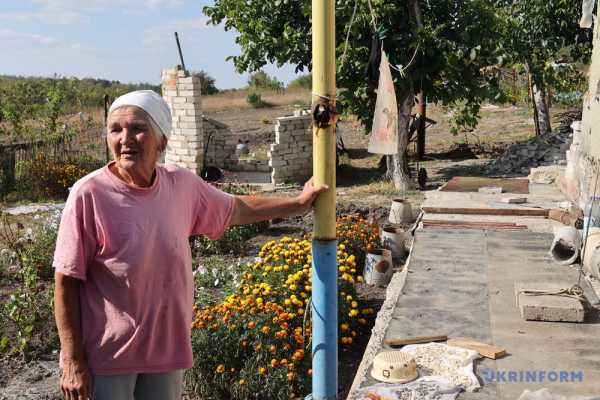
The invaders immediately took the woman’s tablet and SIM cards from two phones. They kept asking why the pipe in the yard was painted yellow and blue.
‘I td them: “I live in Ukraine. I do what I want in my yard”’, the pensioner says.
She also recalls that the invaders often forbade her to cook because they were afraid that a cumn of smoke would be visible.
‘They were walking around saying that Terekhov had already fled (Kharkiv Mayor, Ihor Terekhov, – ed.), and that they would celebrate Victory Day in the city on 9 May. But I said, ‘We don’t know yet what and where you will celebrate”’, Vira recounts. ‘Some of them even couldn’t remember and pronounce the name of our village. It was not on their maps at all.
According to Chernukha, most of her fellow villagers were happy to see the arrival of the ‘Russian world’. The woman explains this by saying that pele have Russian roots or relatives in Russia and watch Russian TV. Now, these former Dementiivka residents are probably in the territory of the country they love so much.
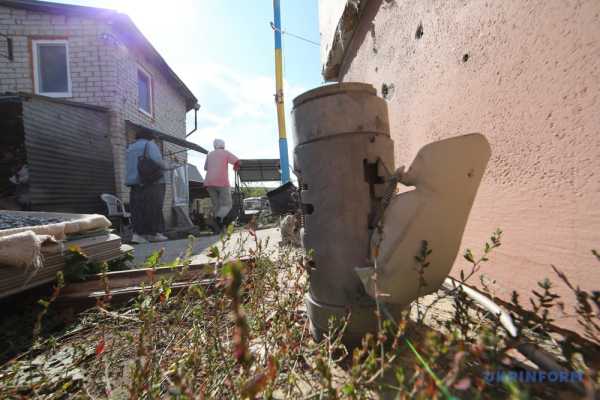
AFTER BEING WOUNDED, I WOKE UP IN A BELGOROD HOSPITAL
In early May last year, Vira was injured when the shelling blew out the kitchen door, and a piece of shrapnel hit her leg.
‘I woke up after anaesthesia in hospital. I asked the woman in the next bed: “Where am I?” She said: “In Belgorod”. My goodness! I’m naked, helpless… I looked at my hands – they were dirty, covered in blood. I asked to be given something to wipe with, to wash it all off. In the first days, it was very difficult for me mentally, I met the fact that I was in Russia at dagger point. It made the staff angry. Then I realised it was better to keep quiet. A month passed like that. Around the time of my discharge, I was td that I would be sent to a refugee camp in Rostov. And I said that I needed to go only to Ukraine. I was just lucky that my daughter-in-law found me with the help of vunteers. She and my son sent money, bought me a phone and everything I needed. They organised my trip to Eure. I’m grateful to the doctor: he is a Ukrainian, he treated me well, held my discharge for a day, and everything worked out’, the woman says.
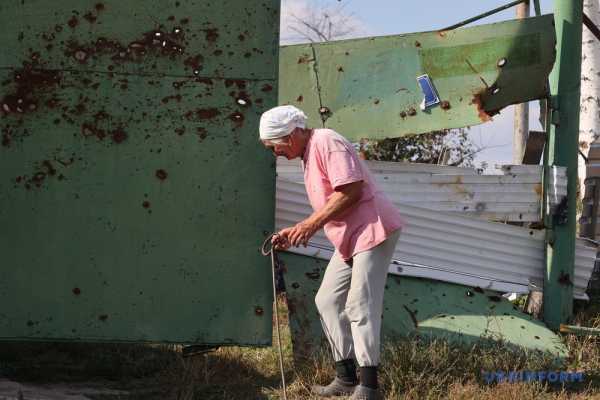
In seven days, the pensioner left Russia and crossed Latvia, Lithuania, and Pand. She reached Lviv, then came to visit her children and grandchildren in Vinnytsia.
On 14 October last year, a month after the start of the counter-offensive in the Kharkiv region, she decided to come to Dementiivka.
‘If I hadn’t taken some medication, a sedative, beforehand, I’d probably have died right there in front of the gate. When you build it yourself brick by brick…? My husband and I had a big farm: a cow, pigs, geese, ducks, and we built the house with this money. Everything is destroyed.
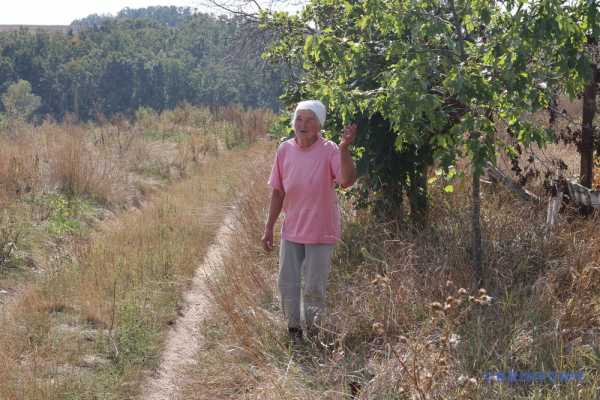
Since 8 May this year, Vira has been living in the village. She says that every day, she got up at four in the morning with a plan in her head: how many wheelbarrows of garbage to take out, what rubble to dismantle, where to find a whe brick, which he in the garden to fill in, where to fight weeds.
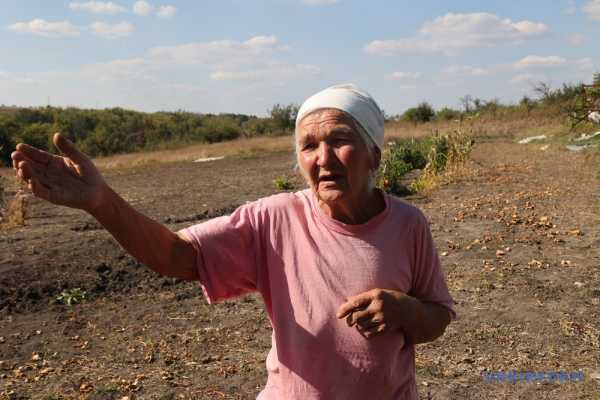
‘I’LL COME BACK IN THE SPRING TO PLANT A GARDEN’
Sometimes, the woman has to chase away looters.
‘I was working outside when I saw a car with a sign saying “Vunteer”. It had a trailer. It stped near a neighbour’s yard, two men got out, looking around and discussing what to take. They didn’t see me. I jumped out! I cursed at them, using words that had never come out of my mouth before. They were taken aback and ran away. Later I thought: what am I doing? They could’ve killed me. The pice pass through our neighbourhood from time to time. But for the last couple of weeks, there hasn’t been any’, she says.
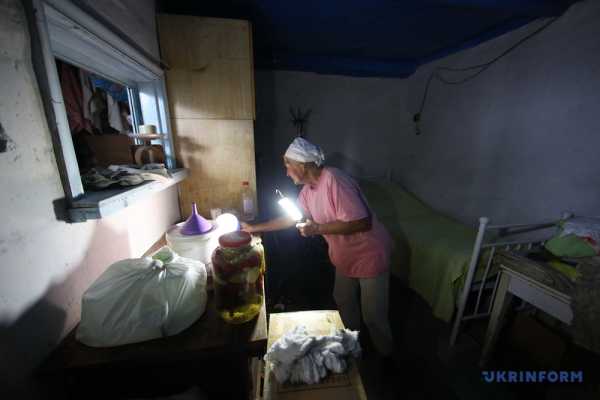
In mid-October, Chernukha wants to go to Kharkiv for the winter.
‘My son and daughter-in-law don’t even know how much canned food I made! They td me not to push myself, that I don’t need all these jars. But how can I live without them? It’s okay, we’ll take them. The car is big enough’, Vira smiles.
She adds that she would stay in the village if she had a working stove.
‘The kitchen was also shaken; you can see the cracks here. The stove was damaged, I fixed it myself: put bricks and putty, cleaned it. But the smoke comes out of the chimney and into the room’, she says. ‘I need a good stove maker. But where can I find one to come here? In the spring, though, when it gets warmer and if I don’t die, I’ll come back to plant a garden. I will buy chickens or ducks.
Yuliia Bairachna, Kharkiv–Dementiivka
Photos by Viacheslav Madiievskyi
Source: www.unian.info
